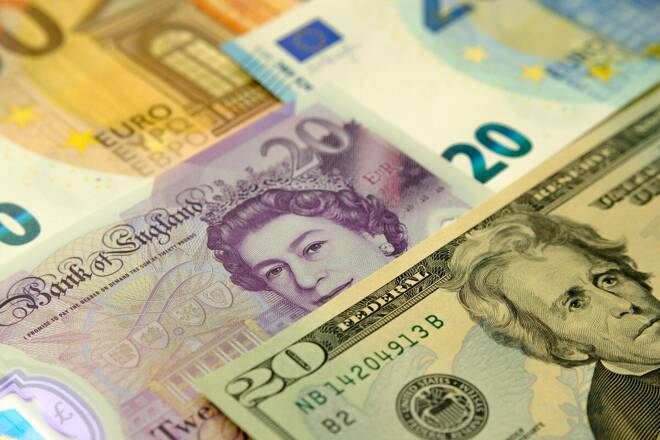Advertisement
Advertisement
GBP to USD Forecast: Sterling Faces BoE Policy Uncertainty and US PMI Watch
By:
British Pound's fate hinges on BoE monetary moves and critical US economic indicators.
Highlights
- The GBP/USD took a hit, declining by 0.45% on Tuesday, ending at a rate of $1.25639.
- Bank of England Governor, Andrew Bailey, is slated for a crucial hearing on the latest Financial and Monetary Policy Reports.
- A slight dip in the US ISM Non-Manufacturing PMI is expected, with implications for the wider economy.
The Tuesday Overview
The GBP to USD fell by 0.45% on Tuesday. Reversing a 0.28% gain from Monday, the GBP to USD ended the day at $1.25639. A mixed session saw the GBP/USD rise to a high of $1.26317 before sliding to a low of $1.25279.
Bank of England in the Spotlight
The GBP/USD faces challenges due to mixed sentiment toward BoE monetary policy goals.
Today, key figures from the Bank of England, including Governor Andrew Bailey, will attend a hearing on the July Financial Stability Report and August Monetary Policy Report (1415 BST).
Given the concerning August PMI data, the Hearing will attract attention, with the BoE Governor likely to answer critical questions on inflation and the economic outlook. Notably, if the BoE hints at pausing rate hikes, it would negatively impact the GBP/USD. Conversely, endorsing two more rate hikes could suggest a prolonged UK recession.
US ISM Non-Manufacturing PMI to Tip the Scales?
The all-important US ISM Non-Manufacturing PMI will draw interest this afternoon. With macroeconomic indicators from China and the euro area flashing red, the ISM number could settle market nerves.
Economists predict a slight drop from 52.7 to 52.5. Since the US services sector represents over 70% of the economy, staying above 50 is crucial. Any unexpected contraction could raise fears of a US hard landing, potentially leading to earlier market expectations of a Fed rate cut.
Beyond the numbers, investors should monitor FOMC member commentary with the media.
Immediate Forecast: BoE vs. the US Economy
The ISM Non-Manufacturing PMI is influential, but the BoE policy goals, especially regarding two more rate hikes, may intensify UK recession fears. Recessionary jitters would negatively affect the GBP/USD. Nonetheless, a robust US service sector is essential for a dollar advantage based on economic divergence.
GBP to USD Price Action
Daily Chart
The GBP/USD remained below the trend line and the 50-day EMA. However, despite recessionary fears, the GBP/USD avoided the 200-day EMA and the $1.24410 support level.
Later today, BoE comments at the Treasury Select Committee Hearing will influence. Assurances that the UK can stomach two further rate hikes would give the bulls a run at the $1.26815 resistance level and 50-day EMA. With the 50-day EMA confluent with the resistance level, the GBP/USD would likely fall short of the trend line.
However, steady US ISM Non-Manufacturing PMI numbers and a dovish BoE would bring the 200-day EMA and the $1.24410 support level into play.
The 14-Daily RSI reading of 39.83 shows the GBP to USD has room to fall to sub-$1.2450 before entering oversold territory.
4-Hourly Chart
The GBP/USD sits below the 200-day and 50-day EMAs, sending bearish price signals. A return to $1.26 would give the bulls a run at the 50-day EMA. However, the BoE must paint a rosier picture of the UK economy and affirm two rate hikes to support a breakout.
Steady US ISM Non-Manufacturing PMI numbers and a dovish BoE would bring sub-$1.25 and the $1.24410 support level into play.
The 41.43 14-4H RSI reading gives the GBP/USD more room to fall before entering oversold territory.
About the Author
Bob Masonauthor
With over 28 years of experience in the financial industry, Bob has worked with various global rating agencies and multinational banks. Currently he is covering currencies, commodities, alternative asset classes and global equities, focusing mostly on European and Asian markets.
Advertisement
